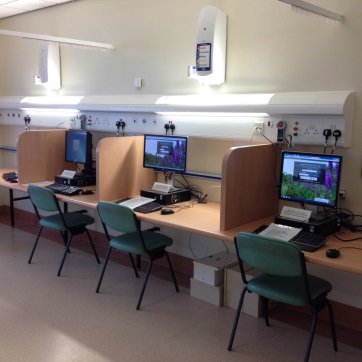Following small scale trials, the Ear, Nose and Throat speciality were among the first to implement this new way of working with their patients. As with other improvement work, the teams had to iteratively design the way in which it worked for themselves rather than being told how to do it. This involved close working between ENT & Pre-op assessment, along with Service Improvement support.
A small group of representatives met fortnightly for 20 weeks using a ‘Listening into Action (LiA)’ programme to plan and implement this change.
Starting small, patients listed during any Wednesday morning clinic with a low complexity of need (ASA score 1 or 2) were sent to Pre-op clinic straight from their clinic appointment and were directed to a computer. They completed the questionnaire (in an average of 19 minutes) and were seen by a support worker and staff nurse who completed observations and swabs. They were also provided with information to prepare them for surgery.
Patient feedback showed that they were pleased not to have to return to hospital for an additional appointment. One patient said: “having both clinics together saved a lot of travelling, time & money. The whole experience was good & everyone put me at ease.”
In the future, the ambition is to increase the amount of patients who can benefit from ePAQ-PO when enough nurse practitioner appointments have been released to see all patients on the same day as being listed for surgery.
By the end of the LiA 20 weeks, 41 patients from ENT used the system. The outcome was 30 hours of nurse practitioner time was saved, ‘freeing up’ this time for use by patients that need that higher level of clinical input.
Continuing on after 20 weeks, ENT agreed to expand their use of ePAQ-PO to every morning clinic, and in the subsequent 2 months a further 88 ENT patients have used the system, saving 82 hours of Nurse Practitioner appointment time.
Other specialities are now using ePAQ-PO and there have been some minor works adaptations to the pre-op clinics to accommodate 8 computers at each of the two sites.
There was complexity with introducing using ePAQ-PO due to the amount of services involved in the pre-op process. The success of the improvement was largely due to different people meeting regularly to design how to make it work using small scale tests.

